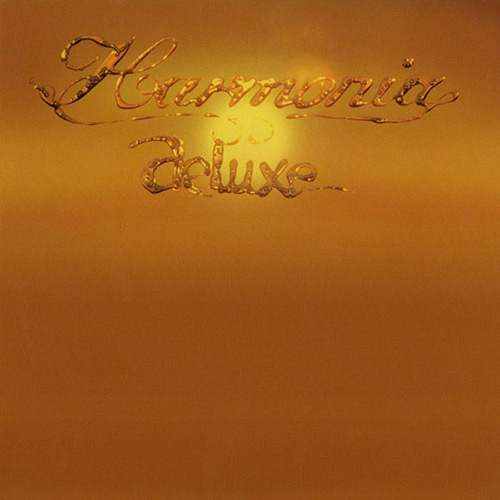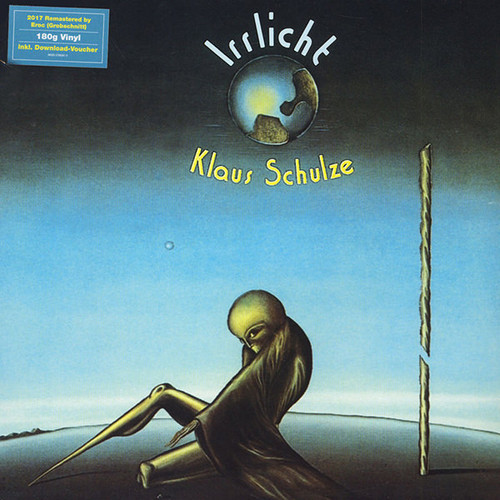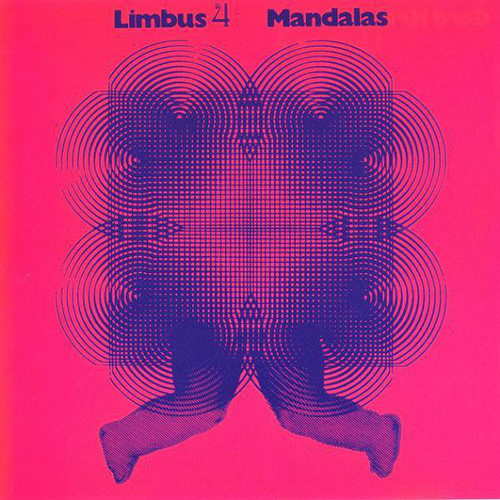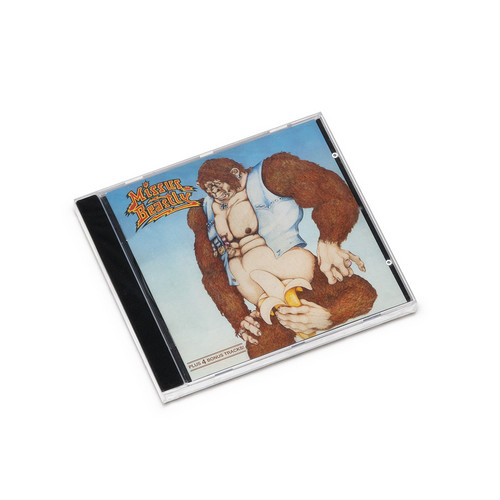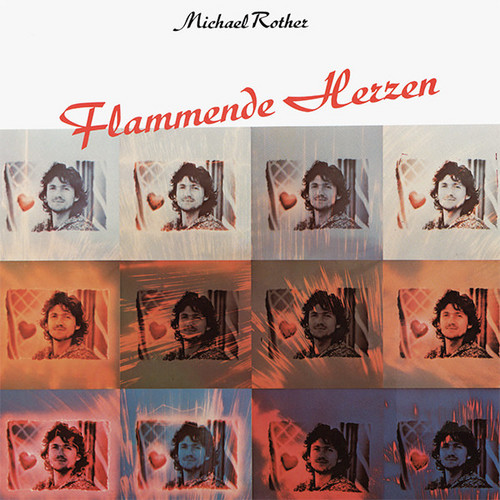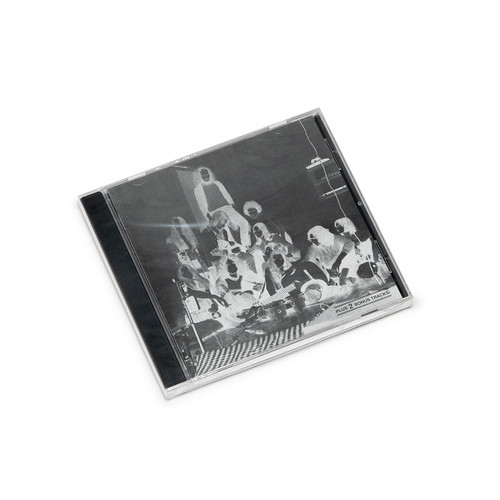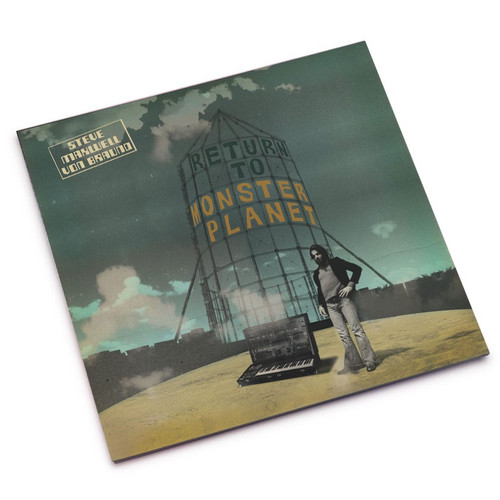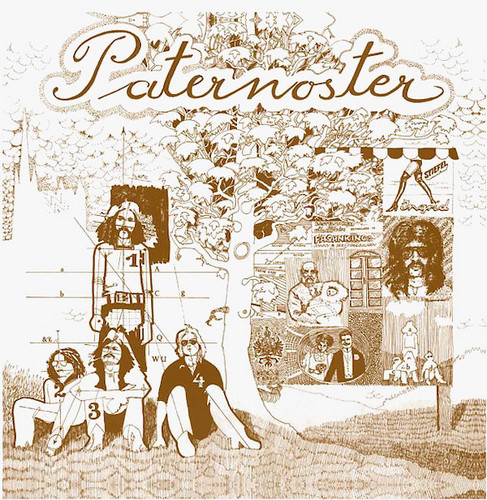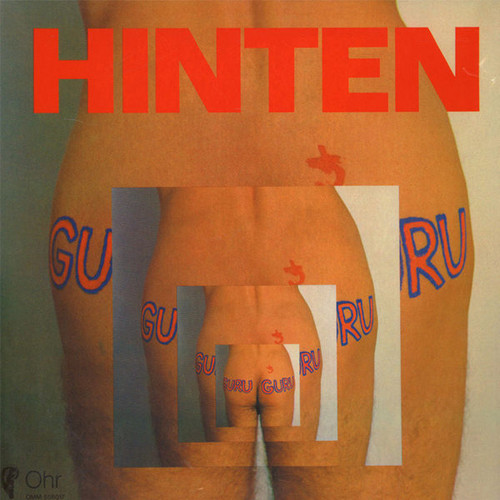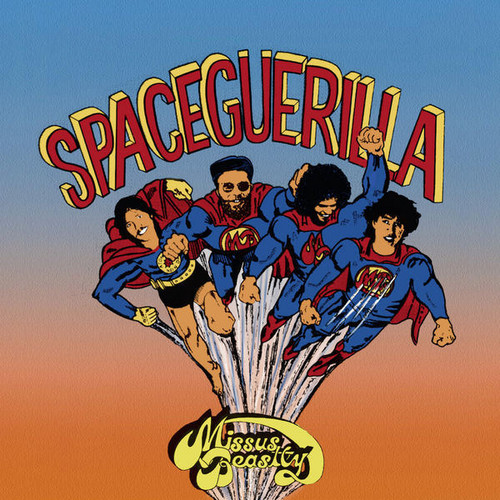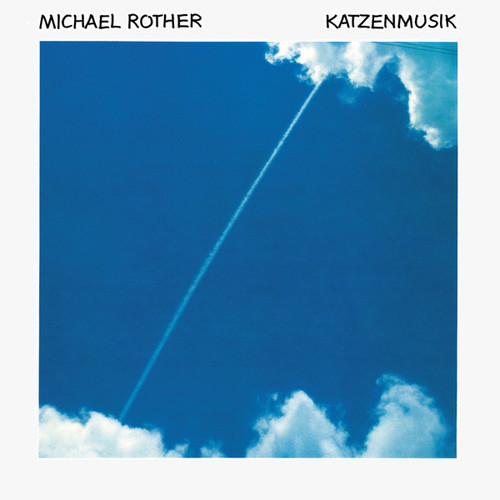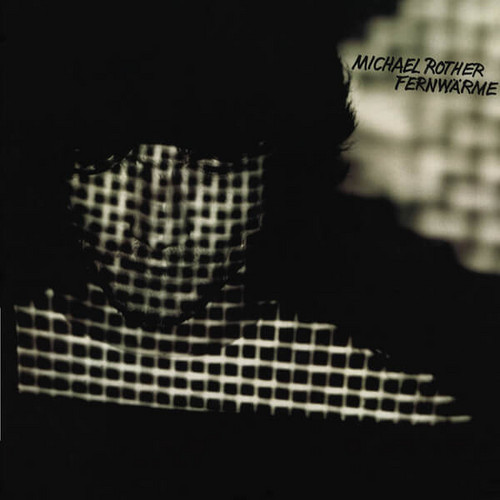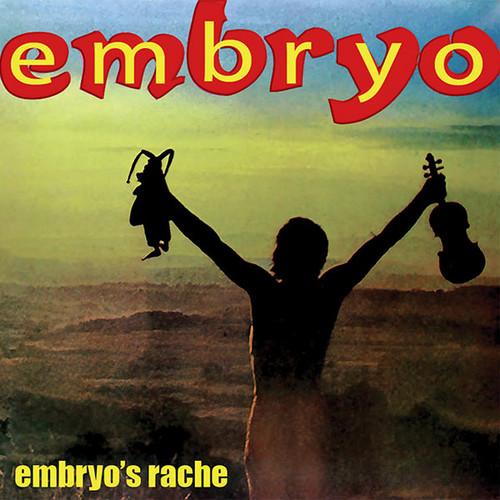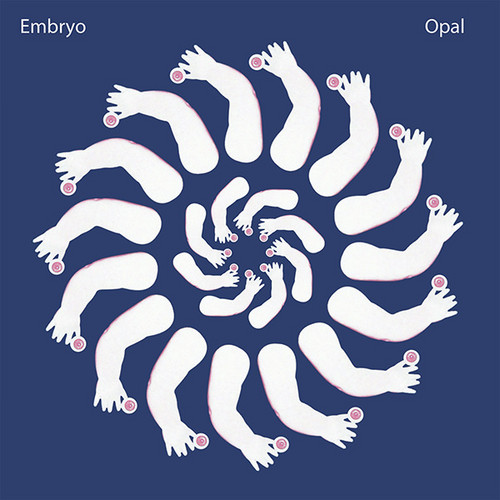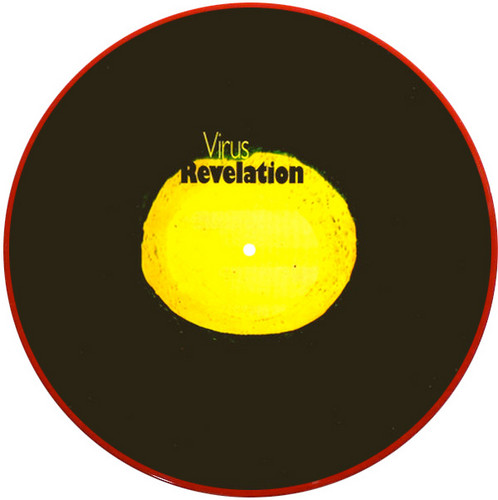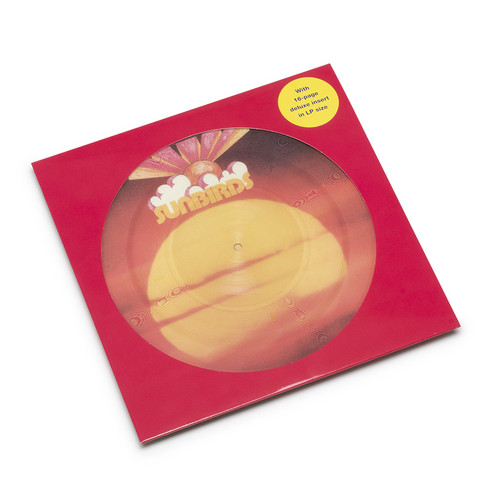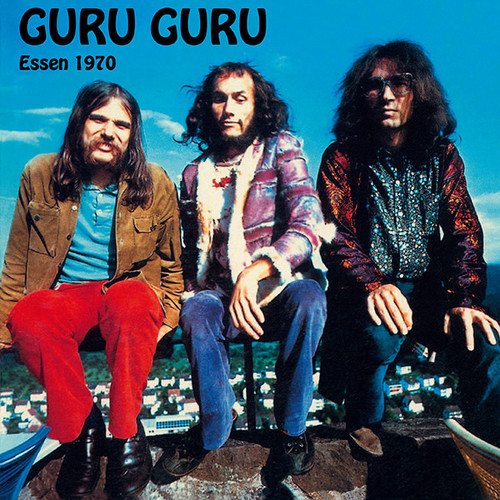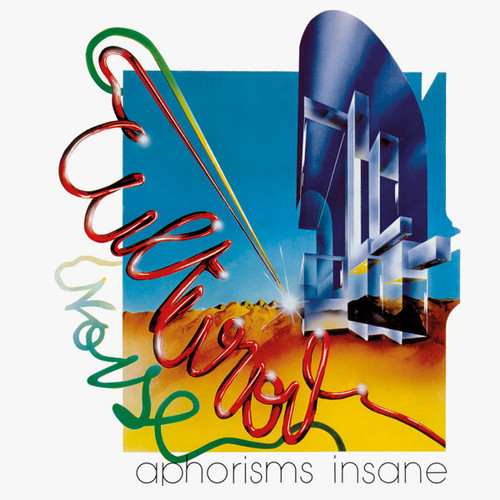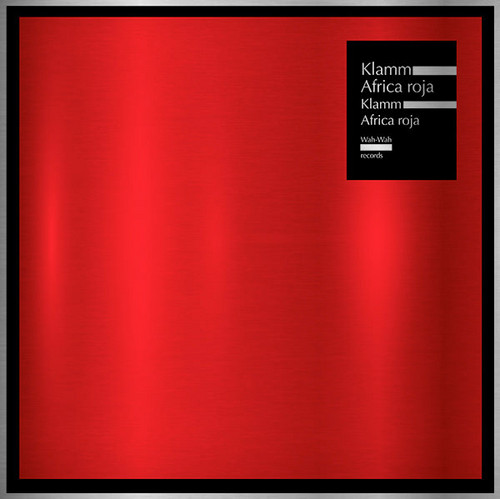Psych /
DeLuxe
Beautiful legit 2015 reissue on Groenland, truly a brilliant little album from Harmonia – quite possibly their greatest record ever, and a set that's wonderfully balanced between progressive and electronic modes! There's a live drummer on the set – Mani Neumeier of Guru Guru – and although he still plays with a spare, circular mode that recalls the Harmonia rhythms of before, there's also a slight bit of propulsion here too – one that pushes the keyboards and guitars alongside nicely. There's al…
Irrlicht
Irrlicht is the solo debut album from Klaus Schulze (originally released in 1972) and is an absolute masterpiece in cosmic, space music. Schulze omitted the use of synthetics for this recording, relying on organ with various electronic effects to produce an absolutely mesmerizing and minimalist body of sounds that transform the listener into a total abstracted world full of mysteries within its almost never-ending spiral. With no electronic pulse and rhythms, just a gloomy and distorted a…
Mandalas
One of the first albums released on Ohr records, Limbus 4 'Mandalas' ranks with the Kluster LP's as one of the most challenging krautrock albums. This is the 2nd Limbus album (their even more obscure debut from 1969, under the name Limbus 3) , which was originally issued by OHR in 1970. A fantastic dose of early 70s German freeform weirdness and an essential reissue for the tuned-out community. "Formed in 1968, Limbus were a most unusual band who grew a unique music out of jazz, folk and avant-g…
Missus Beastly 1974
Missus Beastly regroups and blasts into some very dynamic fusion territory with this exceptional album. The usual apparitions of the house-hold names of the mid-seventies jazz apologists can be traced here, but the eventual output will always sound only as original as Missus Beastly. One of the biggest strengths these guys possesed was their vibrant rhytm section, from the opening track i can make a parallel to Passport's or Embryo's more dynamic tracks, wherein Curt Cress/ Christian Burc…
Flammende Herzen
CD Edition, special price. Reissue of Flammende Herzen, the first studio album by the German solo artist Michael Rother. It was released in 1977 and includes the single "Flammende Herzen" b/w "Karussell". The music was used the following year to soundtrack Flaming Hearts. It was Rother's first solo venture after having recorded five albums prior as a member of Neu! with Klaus Dinger and Harmonia with Cluster. "The album was recorded between June and September 1976 in Germany at Conny's Studio. …
Siloah
Coming out of the boiling Munich scene of the sixties that also gave us the original Amon Düül (Thom Argauer had played in a dixieland band with Chris Karrer in the late 60s, actually), Siloah are one of the best kept secrets of the krautrock production. Siloah had a hard core including Thom Argauer, Manuela von Perfall, Heinrich 'Tiny' Stricker and Wolfgang Görner, plus a host of guests coming and going, everybody was free to join and play at any time, guest members often joining from the Baums…
Return To Monster Planet
A sequel to the cult 1975 Australian space rock album Monster Planet. In 2013 The Roundtable curated a dedicated program redocumenting the music of Australia’s legendary space rock band Cybotron. A new generation of electronic music enthusiasts and krautrock fans alike had been introduced or had perhaps been reconnected to the unlikely yet incredible sounds of Australia’s unique brand of ‘kosmische musik’. This archival series included Steve Maxwell Von Braund’s groundbreaking solo album Monster…
Paternoster
Paternoster, that UFO of a rock album released unceremoniously on a custom-pressed CBS Austria long player in 1972, is the stuff of legend. It's been known to the rock collecting elite since the 1980s, when it was first rediscovered, and it quickly became one of those rock records, the records you hear about only if you know someone who knows someone with a copy, much like Damon's Song of a Gypsy. Paternoster is a terrifying album, a collection of songs that traverses the sublime, and thus neces…
Hinten
German krautrock band Guru Guru was formed in 1968 as The Guru Guru Groove by Mani Neumeier (drums),Uli Trepte (bass), and Eddy Naegeli (guitar) (later replaced by AmericanJim Kennedy (guitar)). By the time of Guru Guru's debut in 1970, Ax Genrich had replaced Kennedy to solidify the classic Guru Guru line up. Guru Guru were related to the free jazz scene both through their work with Swiss pianist Irène Schweizer and through Neumeier, who had already won several jazz prizes before forming the ba…
Spaceguerilla
Instrumental jazz-rock, recorded perfectly in the Stuttgart sound studio Zuckerfabrik in April 1978. Its style resembles that of its predecessor, 'Dr. Aftershave And The Mixed Pickles', but with distinctive jazz-rock/Embryo alike touch. 'Space Guerilla' (originally out on Schneeball) was the fourth and last LP by Missus Beastly. All of the eight tracks were written by the band members themselves. The 24-page booklet in LP size contains a detailed band history in German and in English language, a…
Sterntaler
Reissue of 'Sterntaler', the second studio album by the German solo artist Michael Rother. It was released in 1978 and includes the single "Sterntaler" b/w "Sonnenrad".
"The album was recorded between September and November 1977 in Germany at Rother's own studio in Forst and Conny's Studio. Receiving positive reviews the album was released as an LP in 1977 before it was re-released by Polydor in 1982. The album was reissued on CD in 1993 with bonus tracks and having been remastered. The artwork …
Katzenmusik
Reissue of Katzenmusik, the third studio album by the German solo artist Michael Rother. It was released in 1979 and includes the single "Katzenmusik 9" b/w "Katzenmusik 2".
"The album was recorded between March and July 1979 in Germany at Rother's own studio in Forst and Conny's Studio. Receiving positive reviews the album was released as an LP in 1979 before it was re-released by Polydor in 1982. The album was issued on CD in 1990, and then reissued again in 1993 with bonus tracks and having …
Fernwarme
Reissue of Fernwärme, the fourth studio album by the German solo artist Michael Rother. It was released in 1982 and includes the singles "Silberstreif" b/w "Erlkönig" and "Hohe Luft" b/w "Fortuna".
"The album was recorded in 1981 in Germany at Rother's own studio Flammende Herzen Studio in Forst. Receiving positive reviews the album was released as an LP and Cassette in 1982. In some English speaking territories, the album was retitled Silver Streak, which is the English translation of track one…
Embryo's Rache
**Coloured vinyl edition. 180 gr. vinyl, remastered** A cornerstone in European experimental and popular modern composition. Formed around the core of jazz vibrafonist Christian Burchard and drummer Dieter Serfas, the band started their career in Munich in 1969. 40 years later, more than 300 musicians have passed thru' their ranks, from their colleagues of Amon Duül II (Lother Meid, Chris Karrer, Jimmy Jackson), Xhol (Hansi Fischer), Between (Roberto Detree, Peter Hamel) to renowned jazzmen (Cha…
Opal
**Random color edition** A cornerstone in European experimental and popular modern composition. Formed around the core of jazz vibrafonist Christian Burchard and drummer Dieter Serfas, the band started their career in Munich in 1969. 40 years later, more than 300 musicians have passed thru' their ranks, from their colleagues of Amon Duül II (Lother Meid, Chris Karrer, Jimmy Jackson), Xhol (Hansi Fischer), Between (Roberto Detree, Peter Hamel) to renowned jazzmen (Charlie Mariano, Mal Waldron) or…
Revelation
Virus, from the Bielefeld area in Westphalia, were the best and most famous local progressive group there in the early seventies. In 1970, they won the well-known competition in the Recklinghausen Vestlandhalle – still under their old name of Man’s World. The first prize: Recordings for their first own LP, under the direction of sound magician Conny Plank. That LP, “Revelation”, was released in 1971 and is partly reminiscent of the early Pink Floyd, e. g. in the final part of “Endless game”. The…
Sunbirds
**Picture Disc** Jazz Rock ensemble from Munich led by German drummer Klaus Weiss and Austrian pianist Fritz Pauer and found in 1971. When Pauer presented Weiss some new songs, the two of them gathered Belgian guitarist Philip Catherine, Dutch flutist Ferdinand Povel and American drummer Jimmy Woode (R.I.P.) and formed Sunbirds. The recordings of their debut took place at the Union Studios in Munich on 24th August 1971. Weiss had good connections with various labels and the album was eventually…
Essen 1970
Stunning quality, rare live performance recordings of krautrock pioneers Guru Guru, from one of their earliest ever live concerts on Sunday October the 25th 1970. Three long slabs of prime classic psychedelic prog, two from the ‘UFO’ album and one off ‘Hinten’, show the band at their apex, defining a sound that had never been heard before. Sourced from tapes recorded directly from the sound desk at the show, the recording quality is phenomenal for something of this vintage era. The original line…
Aphorisms Insane
The only album by Austrian trio Cultural Noise is a an electronic marvel. Band members were Gerhard Lisy, Walter Heinisch and Karl Kronfeld, and instruments used included an ARP Sequencer, an ARP 2600, a VCS 3, an EMS Digital Sequencer, a Mellotron M400, a Micro Moog, a Roland Studiosystem 700, a Roland Analogue Sequenzer and an electric guitar. With these weapons and a strong influence from the Berlin school Cultural Noise created a rich electronic tapestry which expanded through the two piece…
Africa Roja
The story of Klamm started in Martorell, 30km near Barcelona, in 1976. Teenagers Josep Saus "Toto", Antonio K. Puertas and Leo Mariño got together under the influence of bands like Can and King Crimson. The original line up consisted of guitar, bass guitar and drums, and they were barely 16 years old when they began. From there, they evolved and also went though different personnel changes, added new influences, had experimental progressive jazz-rock periods, were touched by the works of bands l…
